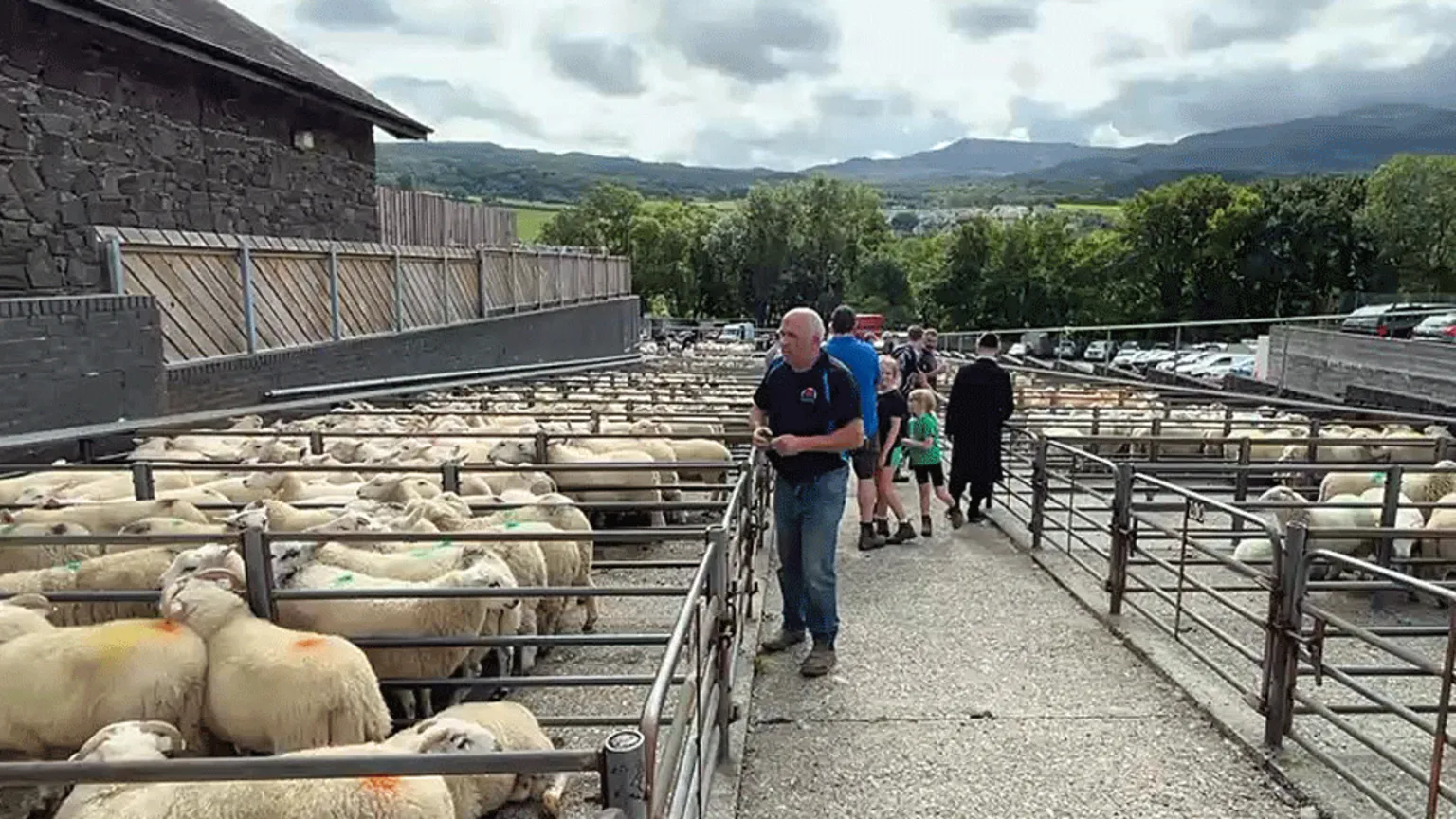The easing of travel restrictions concerning livestock affected by the bluetongue virus in Wales marks a significant change for farmers and the agricultural market. Starting Monday, vaccinated livestock will now be allowed to be transported across the border into England, fostering more robust trade dynamics.
New Protocols for Livestock Movement
As of Monday, livestock that has undergone the full course of vaccination against the bluetongue virus (BTV-3) can travel to markets located within 12 miles (20 km) of the Welsh border. This opening is anticipated to provide relief to local farmers who have been reporting escalated prices due to restrictions that have been in place since July, which limited cross-border trade and pushed many to purchase exclusively local stock.
Chief veterinary officer for Wales, Richard Irvine, emphasized that the bluetongue virus, transmitted through midge bites, poses a serious threat to cattle, sheep, and goats. While the virus does not pose risks to food safety or human health, its impact on livestock can be fatal, raising concerns within the agricultural sector.
Market Implications of the Eased Restrictions
The recent changes to movement restrictions are designed to allow the trading of vaccinated animals while minimizing the risk of virus transmission. Farmers in Wales have been slamming the previous limitations for inflating prices, as highlighted by farmer Ryan Thomas, who stated that reliance on local stock has significantly increased costs due to heightened demand.
Notably, while livestock can now travel from Wales into England, strict conditions remain in place for animals coming from England into Wales without a negative test. This continued regulation illustrates the cautious approach being adopted to prevent further spread of the virus while enabling restricted trade.
Sales and Vaccination Status
Markets within England, such as those in Bishops Castle, Hereford, and Shrewsbury, will now be able to hold specific sales of Welsh livestock under the new guidelines. However, markets must adhere to targeted health measures to prevent any risks during these sales.
The Welsh government has remarked that vaccination is the foremost method for protecting livestock, yet current statistics indicate that only a small percentage of animals have actually been vaccinated. The incomplete vaccination uptake could hinder the safety of livestock movements, especially as the peak seasons approach.
The Stakes for Farmers
Local farmers express mixed feelings about the new policies. Although there is hope that easing restrictions will stabilize market prices, some warn that it could prove catastrophic for cross-border trade, as ongoing limitations still hamper transactions from England into Wales. To offset risks, sales of livestock returning to Wales must be conducted on the same day of travel, eliminating unnecessary delays in transit.
Future Considerations
The move has been deemed as an attempt to balance the integrity of livestock health with the necessary economic benefits associated with livestock trading. Vet Phil Thomas remarked that despite the risks, the policy intends to facilitate trading while monitoring the possible spread of bluetongue.
Historical Context of Bluetongue in the UK
إن bluetooth virus has a troubling history in the United Kingdom, and its emergence has often called for stringent control measures. England has faced its own challenges with outbreaks historically, which led to enhanced government regulation within livestock-related activities.
In the wake of previous movements against agricultural threats, the implementation of quarantine and movement protocols serves to maintain industry stability. The challenge remains to find the right balance between essential precautions for animal health and the urgent need for economic productivity.
The Future of Livestock Trade
As changes take hold, the implications for international tourism, particularly within agritourism, could be profound. Livestock exhibitions and markets often attract visitors, offering potential economic stimulation to local communities. If conducted safely and responsibly, this could assist in drawing tourism to the region, indicating an interconnection between animal health policies and the broader agricultural tourism market.
The situation remains fluid, with ongoing discussions about further adjustments in movement and trading protocols as conditions evolve. These conversations are not just critical to the agricultural sphere, but also echo into the tourism sector linked with local farming industries.
As the landscape continues to change, prioritizing vaccination and maintaining informed discussions about livestock movement and health will be crucial for fostering a resilient farming environment. Easing travel restrictions may initially address immediate economic concerns, but long-term health strategies must remain a priority.
احصل على قارب is always keeping an eye on the latest tourism news. For those interested in marine activities, be sure to explore new opportunities and updates within your local coastal areas.

 Easing of Travel Restrictions for Vaccinated Livestock in Wales">
Easing of Travel Restrictions for Vaccinated Livestock in Wales">
